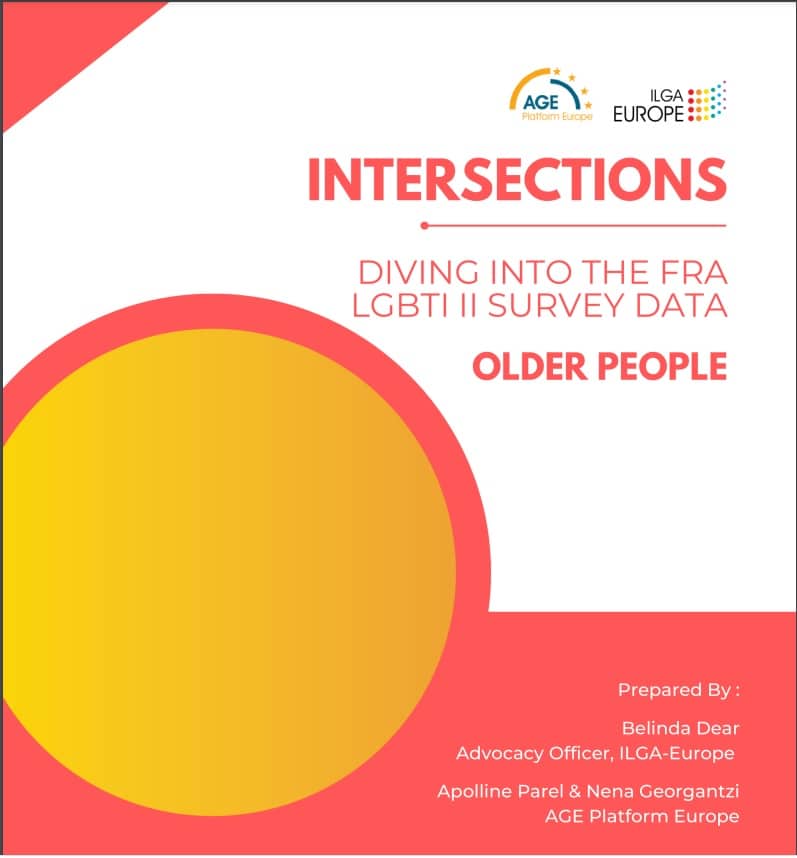
The aim of this report was to highlight the multiple and intersecting forms of discrimination older LGBTI face.
Main findings
In the report, we analysed some demographic information, socioeconomic status, homelessness, parenthood, experiences of discrimination, reporting discrimination, and experiences of violence and how these impact older LGBTI people.
The main findings were the following:
- Among the 10.86% of older respondents who reported experiencing discrimination in accessing health care or social services, 49.91% of older intersex people and 51.02% of older trans people of an ethnic minority (including of a migrant background) reported the issue.
- Older trans, intersex and non-binary respondents had more difficulty than older cisgender respondents in making ends meet, and even more so older respondents of an ethnic minority (including of a migrant background) and older respondents with disabilities.
- 50% of older trans respondents of an ethnic minority (including of a migrant background) reported that they experienced discrimination when looking for work, and housing.
- 28.33% of older trans women and 39.06% of older intersex people reported experiencing violence.
- Older LGBTI people were twice as likely to experience violence in healthcare settings than LGBTI respondents of all ages, with older intersex people, older trans women and older LGBTI people of an ethnic minority (including of a migrant background) experiencing this the most.
Older LGBTI people are at risk of facing accumulated effects of negative stereotypes, stigmas, and discrimination experienced through their lifetime.
Our main recommendations
- Collect, use and analyse data disaggregated by age, sexual orientation, gender identity, gender expression and sex characteristics. This data should be disaggregated by different age sub-groups to reflect the diversity of older LGBTI persons.
- Develop research on older LGBTI people, that should include a variety of older persons, including those living in care settings.
- Recall that older LGBTI persons are a diverse group, facing different forms of discriminations.
- Address the multiple and intersecting forms of discrimination that older LGBTI people face.
For more information, please contact Human Rights and Research Project Officer, Apolline Parel at apolline.parel@age-platform.eu






